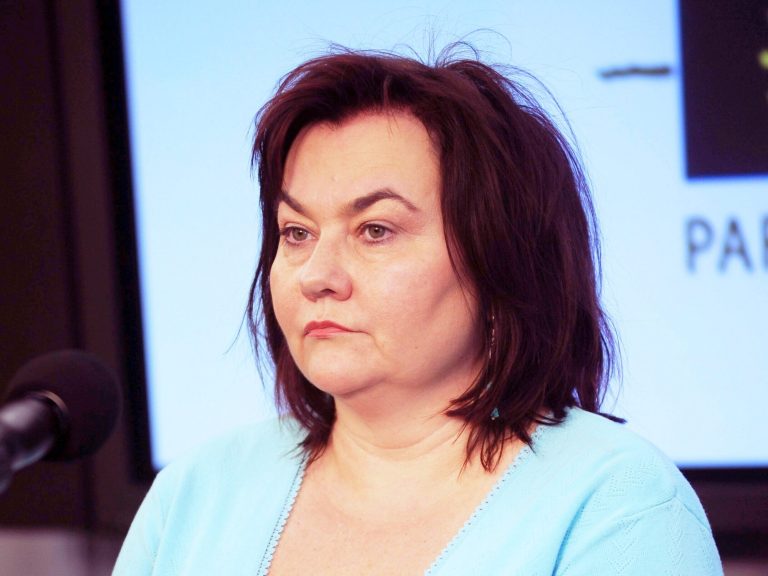2024 in Wprost is the year of Polish science for the development of medicine and health of Poles

Polish science for the development of medicine and the health of Poles – this is a new Wprost series in which we will write about how Polish scientists and doctors are changing medicine. The average life expectancy in Poland is several years shorter than that of residents of Western Europe. To change this, we need a healthier lifestyle, more effective prevention, but also better diagnostics and modern treatment. We benefit from the achievements of scientists from all over the world, including the achievements of Poles who are developing better and better diagnostic and treatment methods in laboratories, universities and hospitals.
Medicine is constantly changing, diagnostic and treatment methods are constantly developing. Polish scientists and doctors have been taking part in this progress for years.
Yesterday and today: great figures of Polish medicine
It is difficult to imagine Polish and world medicine without figures such as Rudolf Weigl (the first person in the world to use lice as laboratory animals and create an effective vaccine against typhus), Hilary Koprowski (creator of the first oral polio vaccine), Ludwik Hirszfeld (an outstanding immunologist, discoverer blood groups and causes of serological conflict), Kazimierz Funk (discoverer of vitamins), Ludwik Rydygier (originator of many innovative operations, he was the first in the world to perform a stomach resection due to ulceration and to remove a prostate adenoma).
Polish scientists and doctors today also conduct work on the genetic causes of oncological, cardiological and neurological diseases, and are engaged in new discoveries in diagnosis and treatment. There is no doubt that many people who work in laboratories today, perform surgeries, look for new methods of diagnosis and treatment, will go down in the history of medicine in the future.
This includes: prof. Maria Siemionow (she was the first person in the world to perform a complete face transplant), prof. Henryk Skarżyński (not only treats hearing loss and total deafness, but is also a pioneer of telemedicine, he also promotes early detection of hearing, vision and speech defects), prof. Wojciech Golusiński (introduces innovative methods of treating head and neck cancer), prof. Janusz Skalski (famous for, among others, saving a child in deep hypothermia), prof. Piotr Ponikowski (conducts innovative research on heart failure), prof. Aleksander Sieroń (his discoveries protect patients, among others, from leg amputations), prof. Jan Lubiński (discoverer of many genetic mechanisms of cancer), or the team of prof. Włodzimierz Jarmundowicz and prof. Paweł Tabakov, who performed the world’s first operation to “repair” the damaged spinal cord.
Promoting knowledge and better health
In the series “Polish science for the development of medicine and the health of Poles” we will show people who are changing medicine with their work, talk to them, show them in reports, and publish video podcasts. They have a passion for discovering knowledge, changing medicine, but above all, saving patients’ health. We hope that our publications will make many people interested in science and medicine. We also want to show that great discoveries are made not only in the United States and Western European countries, but also in Polish laboratories, universities, technical universities and hospital rooms. Not only in Warsaw, Kraków, Gdańsk, Poznań, Wrocław, but also in Białystok, Lublin, Rzeszów.
Each month we will tackle a different topic. We will talk, among others: about how methods of treating patients are changing in Poland, how Polish scientific research is changing the image of medicine. We will show Polish doctors whom the world talks about, Polish physicists and engineers contributing to progress in medicine. We will describe how drugs are created in Poland (generic, innovative; we will also explain what innovation in medicine is). Let’s discuss robotics in medicine, the role of artificial intelligence and big data. We will write about new technologies, innovative devices, medical applications, e-medicine, genetic and epigenetic research, metabolomics and proteomics.
We will show the best medical and natural universities, polytechnics, and how Polish science supports patients with oncological, cardiac, diabetic, neurological, ophthalmological and other diseases.
Each thematic block will be accompanied by quizzes in the summary for people who want to test their knowledge on the topics discussed. Every month we will publish collected articles, reports and quizzes in the form of e-books.
Nobel Prize in medicine for a Pole?
Every year, we all follow the decisions of the Nobel Committee with impatience and attention, hoping for a Nobel Prize for a Pole, including the first prize in the field of medicine. There were already Polish scientists and doctors in the past who “came close to it”. Rudolf Weigl had the most nominations (although he came from an Austrian family, after his father’s death he was raised in a Polish family and always admitted to being of Polish origin). Prof. was also nominated for the Nobel Prize in medicine. Ludwik Hirszfeld. The candidates were also prof. Hilary Koprowski, as well as prof. Ryszard Gryglewski, who conducted research, among others, over the vascular endothelium, important in cardiology.
We hope that among the people we describe there will be a future Nobel Prize winner.
We also encourage you to contact us: if you know about important research and work conducted by Polish scientists and doctors, please send us an e-mail to: (email protected)
Let’s change Polish science and medicine together!






